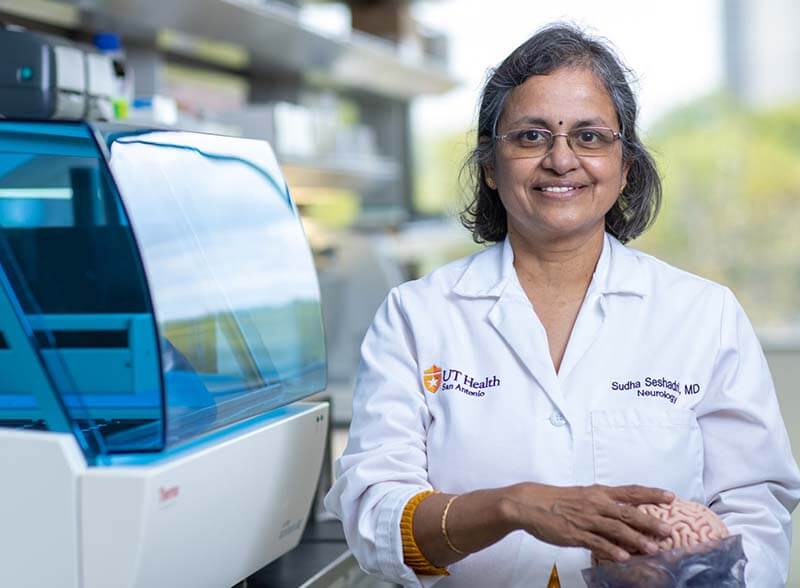The Glenn Biggs Institute for Alzheimer’s and Neurodegenerative Diseases at The University of Texas Health Science Center at San Antonio is recruiting participants for VIVA-MIND, a study to learn whether a new drug therapy for Alzheimer’s disease (AD) can help people experiencing mild memory problems.
Volunteers 50 to 89 with a diagnosis of mild cognitive impairment or probable mild AD may ask about eligibility. Participants must already be on AD medication approved by the U.S. Food and Drug Administration for at least four months before screening and must be living in the community rather than with skilled nursing care.
Half of the volunteers will be given the new drug therapy, an oral pill called varoglutamstat. The other half will receive a placebo pill that looks just like the study drug.

“Varoglutamstat deals with a particularly toxic form of the protein amyloid and the neuro-inflammatory response it induces,” said Sudha Seshadri, MD, professor of neurology and director of the Glenn Biggs Institute.
The drug doesn’t remove amyloid deposits from the brain but prevents formation of a toxic precursor of amyloid. The idea is to intervene in the disease process early, Seshadri said. The study has a strong scientific basis, she added.
VIVA-MIND requires up to 20 months of participation, including seven to 12 visits to the clinic. Memory and thinking tests, heart rhythm tests, physical exams, electrical brain activity tests, brain imaging using MRI, and blood and cerebrospinal fluid tests will be repeated at points during the trial.
The Glenn Biggs Institute, in collaboration with The University of Texas Rio Grande Valley, is Texas’ only National Institute on Aging-designated Alzheimer’s Disease Research Center (ADRC). South Texas is home to a majority Hispanic population, a group of people who are 50% more likely to develop dementia than non-Hispanic whites. The South Texas ADRC is positioned and has the expertise to be a significant center of enrollment of Mexican Americans into clinical trials, Seshadri said.
“The first people who will benefit from a new Alzheimer’s disease treatment are those who are in clinical trials,” she said. “Our goal is to increase participation in clinical trials by diverse groups of people who want to take a more active role in their health care, receive expert care at our ADRC and others across the nation, and benefit society by providing hope for patients with these diseases.”
Diversity is needed, she said, “because Alzheimer’s disease doesn’t look the same in different groups.”
To ask about eligibility for the VIVA-MIND study, please contact Floyd Jones, research coordinator-senior with the Biggs Institute, at 210-450-3158 or jonesfa@uthscsa.edu.


